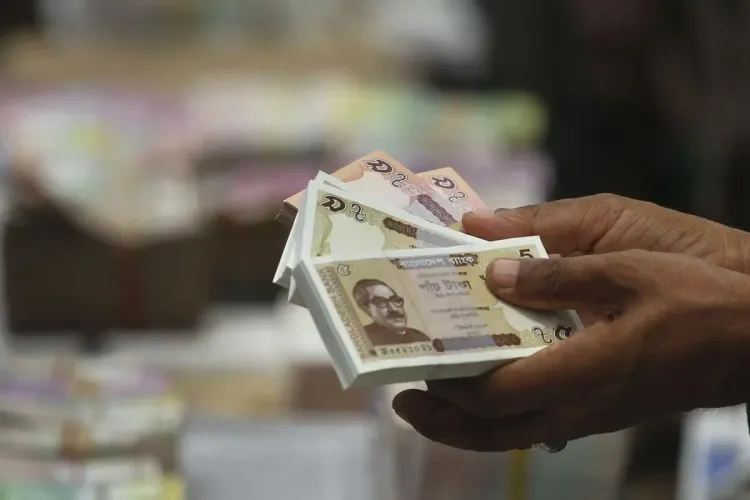Is Bangladesh in a Fiscal Crisis Due to Its Huge Debt Burden?

Synopsis
Key Takeaways
- Bangladesh faces a serious fiscal crisis due to high debt servicing costs.
- Economists urge urgent reforms to manage the debt burden.
- Loss of LDC status could increase borrowing costs significantly.
- Stricter expenditure controls and tax reforms are essential.
- Future strategies must focus on long-term debt sustainability.
New Delhi, Nov 16 (NationPress) The public financial situation in Bangladesh is increasingly alarming, primarily due to substantial interest obligations and loan repayments stemming from the nation's extensive debt load, as highlighted in a report by a newspaper in Dhaka.
This significant financial outflow for servicing debts severely restricts the funds available for the nation's economic growth, contributing to escalating poverty levels, according to the piece in The Business Standard.
Economists in the country argue that the surging costs of interest payments present a critical policy challenge that urgently needs addressing.
The article references Selim Jahan, a former director at the UNDP's Human Development Report Office, who warns that Bangladesh may encounter vulnerabilities in the years ahead as both its external debt and interest commitments continue to grow.
Jahan notes that after the nation graduates from LDC status next year, it is likely to lose access to grants and concessional loans, thereby increasing reliance on more expensive commercial loans with higher interest rates and shorter repayment schedules.
He explains that global monetary tightening, domestic inflation, and the depreciation of the taka have escalated borrowing costs. Consequently, banks are raising interest rates, leading to unprecedented levels of government interest payments.
With the exchange rate plunging from Tk84 to over Tk123 per US dollar in just four years, the local currency is now required in greater amounts to service the same foreign debt, further straining the budget.
Jahan believes that a robust reform program is essential for stabilizing the outlook on debt servicing.
He emphasizes the importance of increasing the tax–GDP ratio through a greater focus on direct taxes and implementing reforms in tax administration.
Additionally, he advocates for the diversification of exports, rationalization of imports, and measures to direct more remittances into strengthening foreign reserves and minimizing dependency on foreign loans.
He suggests stricter expenditure controls, including delaying new infrastructure projects (except those in education and healthcare), cutting non-essential costs, and limiting discretionary spending. Prudent debt management, careful project selection, and improved execution are also necessary.
According to him, large-scale, prestige-driven initiatives without clear economic or social returns should be suspended.
Jahan further underscores that the future government must develop a transparent strategy to ensure long-term sustainability of the debt.









